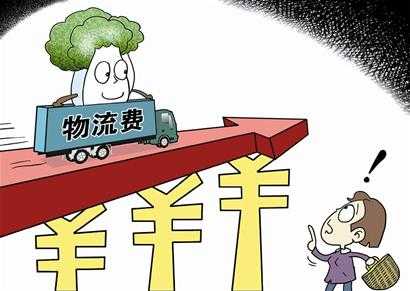
The composition of logistics costs
1. Costs associated with the physical circulation activities of materials and the costs of equipment and facilities necessary to engage in these activities;
2. The costs incurred in completing the transmission and processing activities of logistics information and the costs of equipment and facilities necessary to engage in these activities;
3. Expenses incurred for comprehensive management of the above activities.
Logistics cost calculation conditions
According to the iceberg theory of logistics costs, there are many hidden logistics costs. Logistics costs can be large or small, depending entirely on the scope and method of calculation. Therefore, when calculating logistics costs, the calculation conditions must first be clarified. If the calculation conditions are ignored , logistics costs have lost the meaning of existence. The calculation conditions of logistics costs refer to: logistics scope, logistics function scope and accounting account scope.
1. Logistics scope Logistics scope, as the name suggests, refers to the length of the starting point and end point of logistics. The logistics people usually talk about include: raw material logistics, that is, the logistics when raw materials are transferred from suppliers to factories; intra-factory logistics, that is, raw materials and semi-finished products , the transfer and storage of finished products in different workshops and locations of the factory; logistics from the factory to the warehouse; logistics from the warehouse to the customer, this range is quite broad. Therefore, where to start and where to end, as the calculation object of logistics cost, It will cause great changes in logistics costs.
2. Logistics function scope Logistics function scope refers to which logistics function is used as the calculation object among many logistics functions such as transportation, storage, distribution, packaging, loading and unloading, information management, etc. It is conceivable that all logistics functions are used as calculation objects The cost will be very different from the cost obtained by only taking the two functions of transportation and storage as calculation objects.
3. Scope of logistics cost calculation subjects. The scope of cost calculation subjects refers to the issue of which subjects are included in the accounting subjects. Among the subjects, there are expenses outside the enterprise such as freight expenses and storage expenses. There are also internal expenditures of the enterprise such as labor costs, depreciation costs, repair costs, fuel costs, etc. With so many expenditure items, which ones are included in the cost calculation objects have a great impact on the size of the logistics costs. Therefore, the scope selection of these three aspects, Determines the size of logistics costs. Enterprises must not be blind or careless when formulating calculation conditions. Instead, they should determine their own reasonable logistics cost calculation range based on the actual situation of the enterprise. Costs can only be compared under the same conditions. Only when can we get correct results. Therefore, in order to compare various enterprises with each other, when calculating logistics costs, industry standards should be unified as soon as possible.